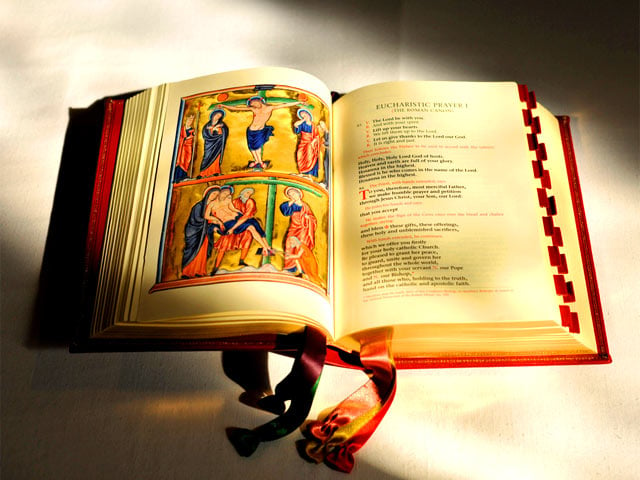- Home
- Our Community
- Our Faith
- Our Ministries
-
Parish Life
- Calendar of Events
- St. Aidan's Video Links
- Parish Blog
- News Archive
- Mass Etiquette and Information
- Ad Orientem News and Facts
- Catholic Links
- Prayers and Announcements
- Luis Dizon Reflections - Archive
- Bulletin
- Contact Us
- Search

Remembering God’s Work (1st Sunday of Lent)
Click here for this Sunday’s Readings
In Deuteronomy 12-26, Moses provides he laws that the people of Israel are to adhere to as they enter the land of Canaan. These laws were meant to supplement the ones already given in the previous books, and represent Israel’s transition into a settled society.
This week’s Old Testament reading comes at the end of this legal section, and concerns the first fruits that the Israelites are to offer after they take possession of the land, as the preceding verses make clear:
When you have come into the land that the Lord your God is giving you as an inheritance to possess, and you possess it, and settle in it, you shall take some of the first of all the fruit of the ground, which you harvest from the land that the Lord your God is giving you, and you shall put it in a basket and go to the place that the Lord your God will choose as a dwelling for his name. You shall go to the priest who is in office at that time, and say to him, “Today I declare to the Lord your God that I have come into the land that the Lord swore to our ancestors to give us.” (Deuteronomy 26:1-3)
God’s instructions echo similar commandments already given involving first fruits (Exodus 23:19; Numbers 18:12–13; Deuteronomy 12:6; 14:28–29), and are meant to supplement rather than replace them. What makes this one different is its purpose. As the Israelites make their offering, they are to recite a summary of their salvific history up to that point, beginning with their ancestor Abraham, “a wandering Aramean,” then proceeding to their years of slavery in Egypt, and then their deliverance from that slavery, and finally their arrival in the Promised Land.
Thus, the offering ritual becomes a reminder for them of what God has done for them. It also becomes a way of giving thanks for God’s providential work in Israel’s history. By reciting these words, they acknowledge not only that God was at work in their past, but is still at work in their lives in the present day, and will continue to be with them as long as they remain faithful to Him.
This offering ritual is also a reminder to us to look back on Israel’s salvation history, and see in it God preparing to bring the Messiah into the world to save us from sin, culminating in Jesus’ death and resurrection. This Lent, we recognize how God has acted in the past to bring salvation to world, and give thanks for this great gift and for bringing knowledge of that salvation to us.
J. Luis Dizon
